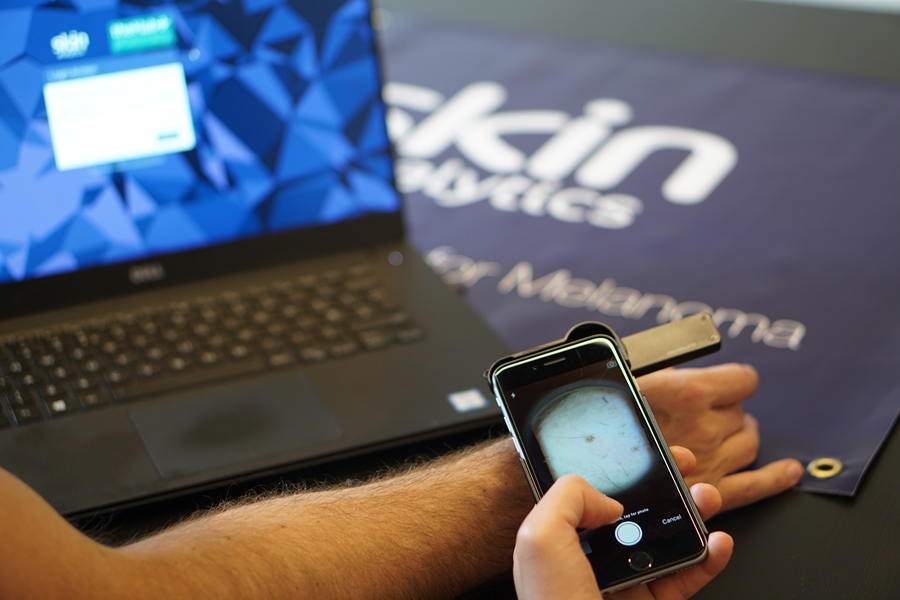Alongside diagnosis: AI’s role in shaping health transformation outcomes

Humans are about to go hybrid – in fact, our race is undergoing its own digital transformation. Artificial intelligence (AI) is changing the way we operate, but can the healthcare sector be smart enough to take advantage?
We’re all aware of climate change. Several years ago, scientists identified its consequential shifts had created a new hybrid wild bear. Forced south due to habitat changes, the polar bear moved into grizzly bear territory – and when the unstoppable force met the immovable object, nature took its course, and the prizzly bear was born.
As animals evolve, so now do humans. And unless you’ve been squashed under a bear for the past six months, you’ll have noticed daily warnings in the media about robots coming for our jobs.
The fact is AI is coming for certain roles, and jobs will inevitably be lost, with Forbes estimating that a third of healthcare work could soon be automated. But there is another way to look at this. What if humans embrace becoming hybrid beings, and incorporate the best aspects of technology with our own wisdom, so we could perhaps achieve better outcomes-based healthcare transformation?
Don’t obsess over technology’s outputs
At its heart, transformation in healthcare is really about people, not the technology.
With automated healthcare solutions, we can take some of the friction out of care experiences. That means healthcare professionals get to focus on what they do best, without getting bogged down in complexity and inefficiencies that are contributing to alarming rates of burnout.
There are some great tools emerging, for example, Healthily uses a combination of advanced AI and human-friendly design to bring medical knowledge out of the clinic and into everyday life. By providing online access to tools, insights, and medical expertise, people are able to make better health decisions and avoid preventable illness, while healthcare professionals have additional free time to focus on complex patient needs.
As such, organisations need to be outcome-based, not output focussed. But what does this mean in practice?
In essence, those companies keen to revamp their digital infrastructure will only thrive if they develop and implement a fully-fledged Outcome-based Business Model (OBM).
Part of the danger as AI technologies take hold is that we might only focus on – even obsess over – what the next wave of code-based change looks like. Do that and we’ll forget to consider the opportunities AI provides, and what the patient really wants.
Frankly though, most healthcare businesses don’t understand AI to the extent that it could be optimised for best results. And by the time they get to grips with what it can be used for (or when licensing regulations are eased) we might be a further twenty AI iterations down the line.
In the future, a true AI-driven healthcare company will be perceptual; one that is fully autonomous; doesn’t ask our permission or lead us to an answer; and just fixes everything before we get into trouble. If that’s going to be the case, then surely now is the time to pause and take a step back.
With 70% of physicians saying they spent at least 10 hours a week on administrative tasks, if, where we can, programme the technology to plan, implement, and measure all the errands that we know it can easily and efficiently take off our hands – the outputs – imagine how many more people we could help.
From outputs to outcomes: a mindset transformation
Consider what freeing up the collective time you and your teams allocate to admin would mean for more strategic aspects of healthcare. The traditional delivery models are all KPI driven. And if AI is handling all of that, it changes the work us humans need to do.
So, really, this aspect of digital transformation is actually a mindset transformation.
Because of this, AI should stand for ‘Augmented Intuition’. When tech hums along mopping up linear tasks, we can turn our attention to answering higher-purpose, outcome-focussed questions about the delivery model, including:
- What do you really want to achieve as an organisation?
- How do you want patients to feel, rather than fretting about what you want them to do?
- Can technology underpin better patient relationships?
- In an ideal world, what service would your company be famous for?
Even in the healthcare setting, we need to think creatively and innovatively, which automation of output frees us up to focus on. Don’t dwell on AI trends! Instead, seek to understand specific, relevant, measurable outcomes: what do you want to achieve? What are the problems you want to solve for people?
Focus on that, and the automation will slip into place (once licensing allows).
OBM, then is about having a positive change, but with measurable outcomes. It should underpin a culture of continuous learning, with workforces trained to feel comfortable with the technology, and to get the best from it as rapid shifts continue to rattle down the tracks towards us.
Just like those prizzly bears, humans are becoming a victim of their changing environment. But evolution – progress – has always been about adapting and finding new purpose.













